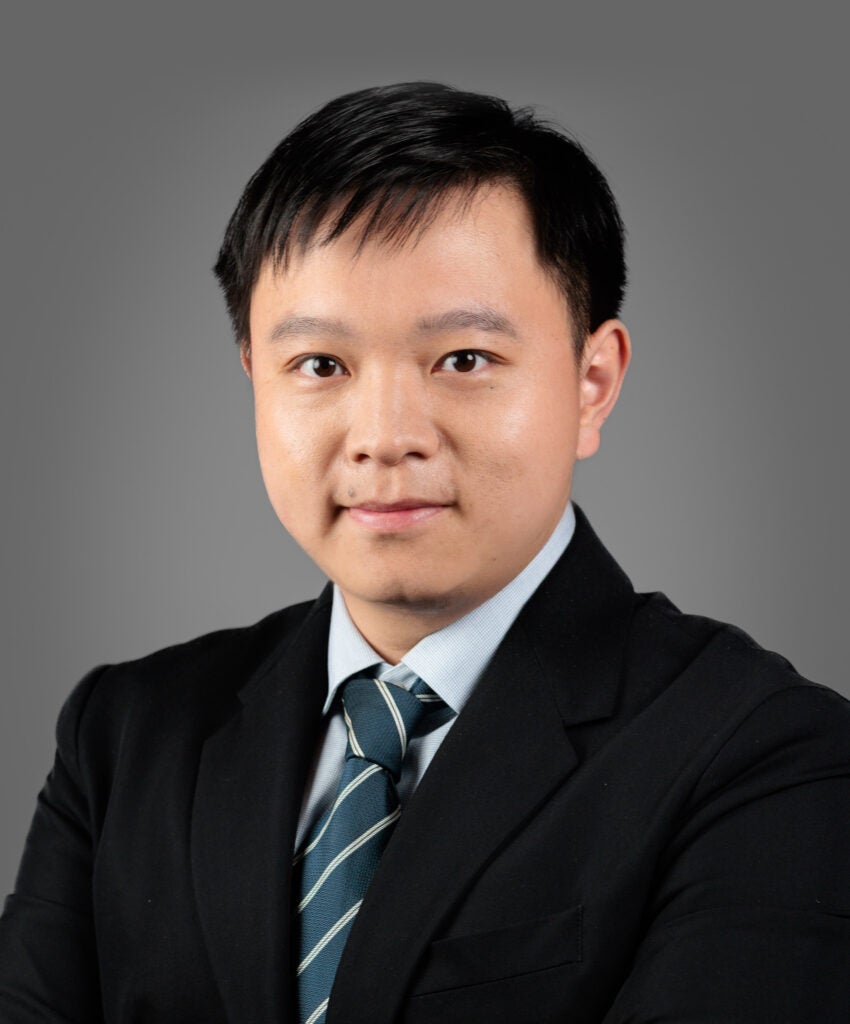Dr. Zeyu Deng (aka Jerry) specialises in computational materials science, multiscale modelling, and high-performance computing. His research focuses on leveraging advanced computational techniques to elucidate the design principles underlying materials for renewable energy applications, such as high-performance energy storage devices and CO2 capture technologies. Dr. Deng obtained both an M.Phil. (2015) and a Ph.D. (2019) in Materials Science and Metallurgy from the University of Cambridge, where his doctoral research focused on the computational design of novel halide perovskites for photovoltaic applications. Following his doctorate, Dr. Deng relocated to Singapore and conducted postdoctoral research at the National University of Singapore (NUS), exploring the computational simulation of materials for clean energy applications, including rechargeable batteries and porous materials for CO2 capture. In 2024, he assumed an Assistant Professorship position in the Department of Materials Science and Engineering. Dr. Deng’s distinguished career has been recognized through several prestigious awards, notably the MRS Graduate Student Award and the Lee Kuan Yew Postdoctoral Fellowship.
Selected Publications:
- Deng, Z. et al. kMCpy: A python package to simulate transport properties in solids with kinetic Monte Carlo. Comput. Mater. Sci. 229, 112394 (2023).
- Zhang, Z. et al. Exclusive Recognition of CO2 from Hydrocarbons by Aluminum Formate with Hydrogen-Confined Pore Cavities. J. Am. Chem. Soc. jacs.3c01705 (2023) doi:10.1021/jacs.3c01705.
- Evans, H. A. et al. Aluminum formate, Al(HCOO)3 : An earth-abundant, scalable, and highly selective material for CO2 capture. Sci. Adv. 8, eade1473 (2022).
- Deng, Z. et al. Fundamental investigations on the sodium-ion transport properties of mixed polyanion solid-state battery electrolytes. Nat. Commun. 13, 4470 (2022).
- Deng, Z. et al. Towards autonomous high-throughput multiscale modelling of battery interfaces. Energy Environ. Sci. 15, 579–594 (2022).
- Deng, Z. et al. Phase Behavior in Rhombohedral NaSiCON Electrolytes and Electrodes. Chem. Mater. 32, 7908–7920 (2020).
- Kasel, T. W. et al. Metal-free perovskites for non linear optical materials. Chem. Sci. 10, 8187–8194 (2019).
- Deng, Z., Kieslich, G., Bristowe, P. D., Cheetham, A. K. & Sun, S. Octahedral connectivity and its role in determining the phase stabilities and electronic structures of low-dimensional, perovskite-related iodoplumbates. APL Mater. 6, 114202 (2018).
- Deng, Z. et al. Synthesis and Characterization of the Rare-Earth Hybrid Double Perovskites: (CH3NH3)2KGdCl6 and (CH3NH3)2KYCl6. J. Phys. Chem. Lett. 8, 5015–5020 (2017).
- Deng, Z. et al. Exploring the properties of lead-free hybrid double perovskites using a combined computational-experimental approach. J. Mater. Chem. A 4, 12025–12029 (2016).
Teaching:
- MLE4217, Application of Big Data in Materials Science
- MLE5219, Materials Informatics: The Role of Big Data


